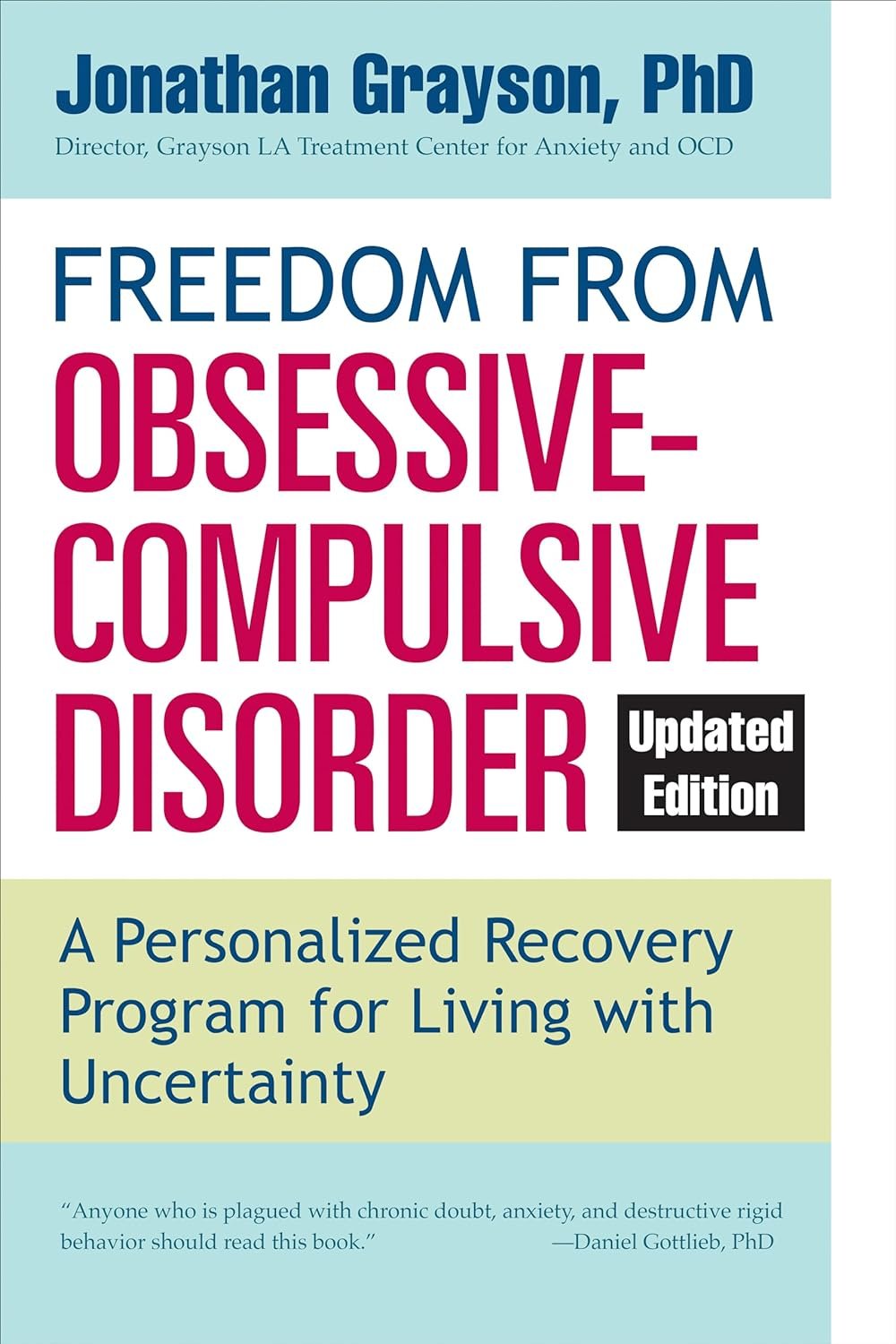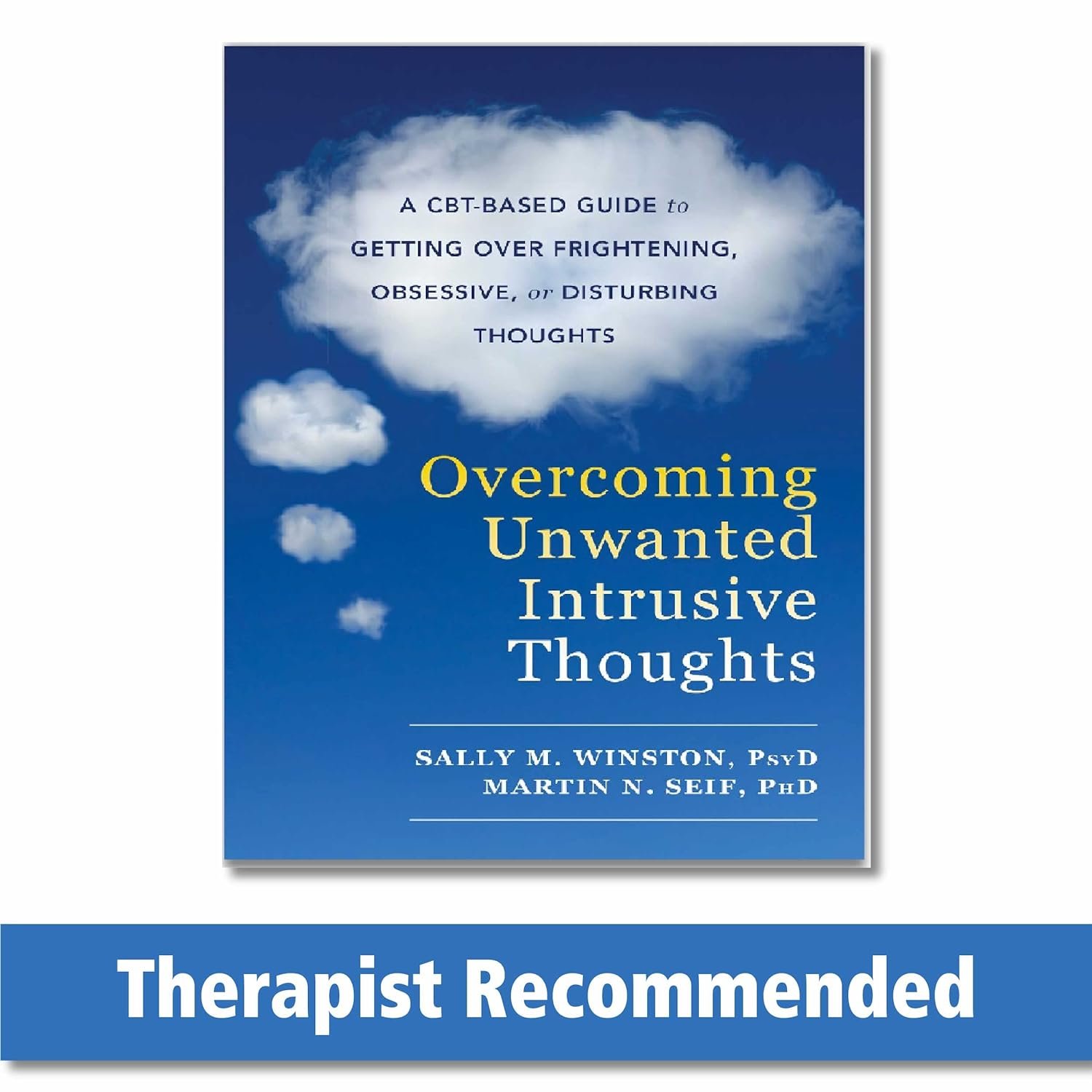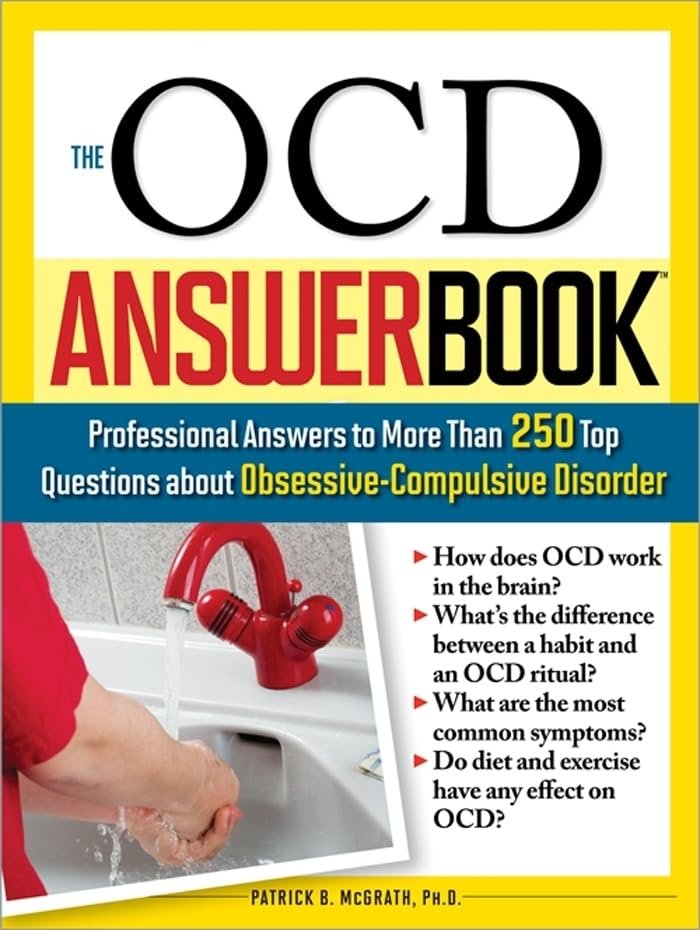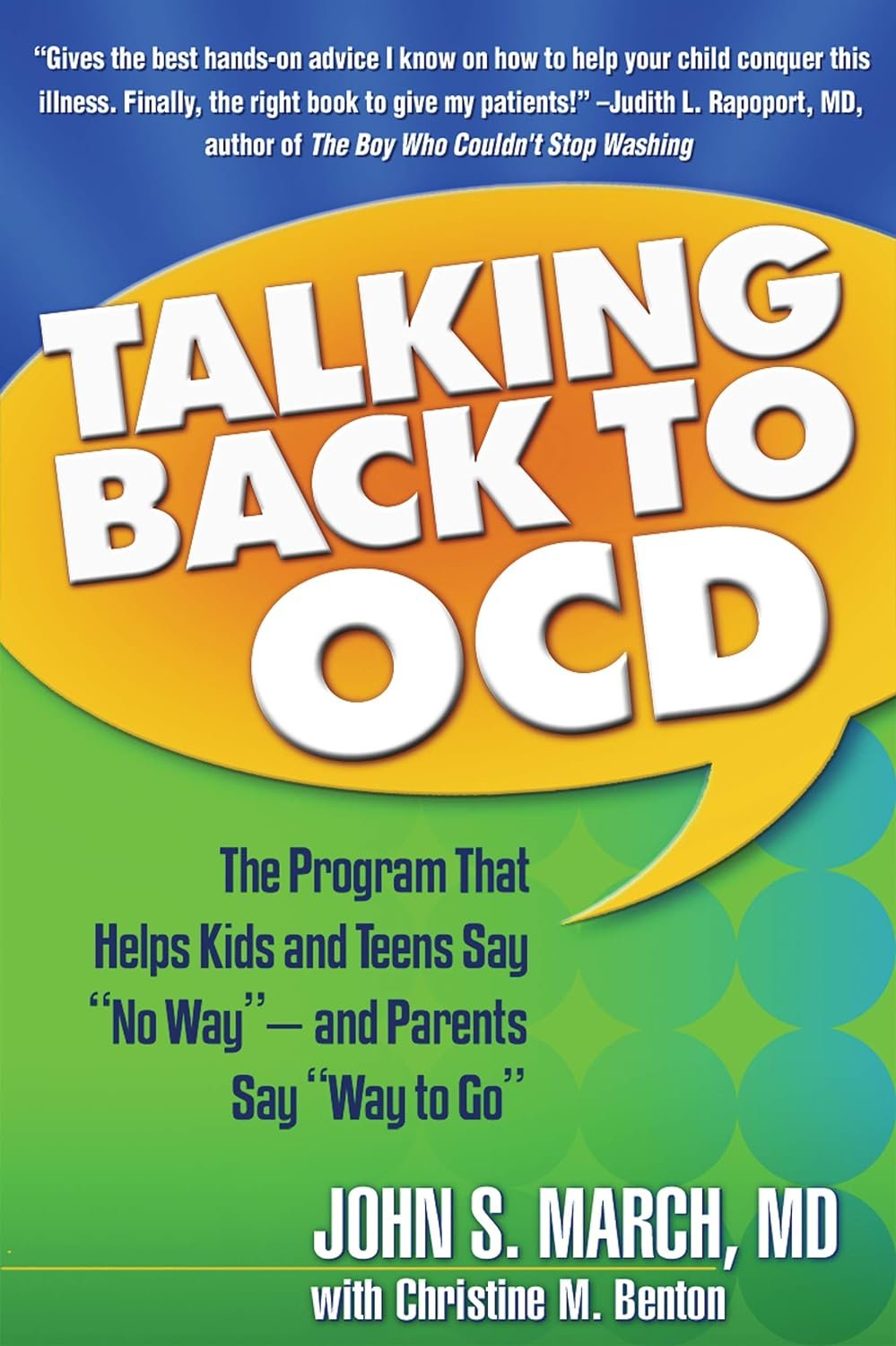Obsessive-Compulsive Disorder (OCD) affects millions globally, presenting a spectrum of challenges that can pervade daily life. Understanding and managing this disorder is crucial for those affected and their loved ones. Books, particularly those that offer practical advice and relatable content, can be invaluable resources. Here, we delve into the top books that provide insights into managing OCD, offering tools from cognitive behavioral therapy to mindfulness, aimed at empowering readers with the knowledge and techniques to tackle their symptoms. Here we cover the best books for OCD.
| Book Title | Author(s) | Focus Area | Rating | ||
|---|---|---|---|---|---|
| The Mindfulness Workbook for OCD |  | Jon Hershfield MFT, Tom Corboy MFT | Mindfulness, CBT | 4.4/5 | |
| Freedom from Obsessive Compulsive Disorder |  | Jonathan Grayson, PhD | Comprehensive OCD Management | 4.6/5 | |
| Overcoming Unwanted Intrusive Thoughts |  | Sally M. Winston, PsyD, Martin N. Seif, Ph.D. | Managing Intrusive Thoughts | 4.7/5 | |
| The OCD Answer Book |  | Patrick McGrath, PhD | General OCD Knowledge | 4.5/5 | |
| Talking Back to OCD |  | John S. March | Youth-Focused Strategies | 4.1/5 |
Key Takeaways – Books for OCD
- Educational and Practical: Each of these books provides valuable insights into managing OCD, whether through practical exercises, comprehensive guides, or answers to common questions.
- Accessible Techniques: Techniques like mindfulness, CBT, and others are explored in detail, offering readers a range of tools to manage their symptoms effectively.
- Support for All Ages: From children to adults, these books offer tailored advice that can help anyone struggling with OCD at any age.
These books not only educate but also empower readers to reclaim their lives from OCD’s influence, providing hope and practical methods for daily management. Whether you’re dealing with OCD yourself or supporting a loved one, these resources are invaluable in navigating the complexities of the disorder.
Essential Reads: Top Books for Understanding and Managing OCD
1. “The Mindfulness Workbook for OCD” by Jon Hershfield MFT and Tom Corboy, MFT This workbook is an excellent resource for anyone looking to manage their OCD symptoms through mindfulness and cognitive behavioral therapy (CBT). It offers practical exercises and updated information aimed at developing present-minded awareness and breaking intrusive thought cycles.
- Learn mindfulness techniques specific to OCD.
- Incorporate CBT principles to tackle compulsive behaviors.
- Ideal for both beginners and those already familiar with mindfulness practices.
2. “Freedom from Obsessive Compulsive Disorder” by Jonathan Grayson, PhD Dr. Grayson’s book provides a comprehensive guide to understanding and managing OCD with a focus on living with uncertainty. This book combines personal insights with professional techniques, making it a cornerstone resource for those affected by OCD.
- Gain a deeper understanding of OCD.
- Learn practical strategies for managing uncertainty and anxiety.
- Use assessments and tools developed by a leading OCD expert.
3. “Overcoming Unwanted Intrusive Thoughts” by Sally M. Winston, PsyD, and Martin N. Seif, Ph.D. This book is specifically designed to help readers combat intrusive thoughts through cognitive-behavioral techniques. It’s particularly useful for those dealing with ‘purely obsessional’ OCD, where compulsions are not overt.
- Develop skills to manage and overcome intrusive thoughts.
- Focus on CBT techniques tailored for thought-based compulsions.
- Accessible to those new to OCD management and seasoned practitioners.
4. “The OCD Answer Book” by Patrick McGrath, PhD A practical guide answering over 250 common questions about OCD, written by an expert in the field. This book is a great starting point for those newly diagnosed or family members seeking to understand OCD better.
- Easy-to-understand answers to frequent questions about OCD.
- Insights from a leading expert in OCD treatment.
- Helpful for both sufferers and their loved ones.
5. “Talking Back to OCD” by John S. March Designed for a younger audience, this book helps kids and teens assert control over their OCD with an eight-step program. It’s also a valuable resource for parents looking to support their children effectively.
- Empowers young readers to tackle OCD symptoms.
- Provides guidance for parents on supporting their children.
- Focuses on practical, youth-friendly management strategies.
Detailed Questions Related to the Article on OCD Management Books
- How can “The Mindfulness Workbook for OCD” aid individuals in managing their OCD symptoms?
- “The Mindfulness Workbook for OCD” integrates mindfulness and Cognitive Behavioral Therapy (CBT) techniques tailored specifically for those battling OCD. This workbook guides readers through exercises that promote awareness of the present moment while systematically addressing the intrusive thoughts and compulsive behaviors characteristic of OCD.
- By practicing the exercises detailed in the workbook, individuals can learn to observe their thoughts without judgment and respond to them in less distressing ways. This is particularly valuable for breaking the cycle of obsessive thoughts and compulsive actions, which is often exacerbated by negative reactions to one’s own thoughts.
- The structured approach provided by the workbook encourages consistent practice, which is essential for making progress in therapy. Readers can expect to gain a better understanding of their condition and develop practical skills that can be applied daily to manage symptoms effectively.
- Summary Points:
- Combines mindfulness with CBT to address OCD symptoms.
- Helps readers learn to observe thoughts without judgment.
- Provides a structured approach for consistent practice and symptom management.
- What unique perspectives does “Freedom from Obsessive Compulsive Disorder” offer to its readers?
- Authored by Jonathan Grayson, this book offers an expansive view of OCD management through a blend of personal insights, professional techniques, and comprehensive guides. Grayson provides not just coping mechanisms but also a deep dive into understanding the nature of OCD and living with uncertainty.
- “Freedom from Obsessive Compulsive Disorder” is recognized for its practical approach, which includes detailed assessments and tools that can be used both independently and alongside therapy. This makes it a versatile resource for individuals at different stages of their treatment.
- The book also emphasizes the importance of accepting uncertainty, which is a crucial step for many in managing their OCD symptoms. By equipping readers with knowledge and techniques to handle uncertainty, Grayson helps diminish the power of OCD over their lives.
- Summary Points:
- Provides a comprehensive understanding of OCD.
- Includes assessments and practical tools for managing symptoms.
- Emphasizes the importance of accepting uncertainty in OCD management.
- How does “Overcoming Unwanted Intrusive Thoughts” cater to individuals struggling with pure obsessional OCD?
- Sally M. Winston and Martin N. Seif’s book specifically targets individuals dealing with ‘pure O’ OCD, where compulsions are not visibly apparent but are instead manifested through distressing mental rituals and repetitive thought patterns. This focus is particularly useful for those who might not find traditional OCD literature applicable.
- The book outlines cognitive-behavioral techniques tailored to tackle intrusive thoughts, offering strategies to minimize their frequency and impact. This is crucial for sufferers whose primary symptomatology includes relentless unwanted thoughts.
- By providing a clear explanation of how intrusive thoughts work and offering methods to manage them, Winston and Seif empower readers to regain control over their mental processes. This book is an essential tool for those needing to understand and manage the intensity of their internal experiences.
- Summary Points:
- Specifically designed for individuals with ‘pure O’ OCD.
- Focuses on managing intrusive thoughts through CBT.
- Offers strategies to decrease the frequency and impact of intrusive thoughts.
- What insights does “The OCD Answer Book” provide for families and individuals new to OCD?
- “The OCD Answer Book” by Patrick McGrath is an accessible resource that addresses common questions and concerns about OCD, making it an ideal starting point for families and individuals newly encountering this disorder. The book’s Q&A format makes it easy to navigate and find relevant information quickly.
- McGrath uses his extensive experience to demystify OCD, offering answers that are both informative and reassuring. This is particularly helpful for reducing the stigma and misunderstanding that often surrounds OCD.
- The book also offers practical advice for supporting someone with OCD, including communication tips and strategies to encourage treatment adherence. This makes it a valuable tool for families and caregivers who play a crucial role in the management of OCD.
- Summary Points:
- Answers common questions about OCD in an easy-to-understand format.
- Reduces stigma and enhances understanding of OCD.
- Provides practical advice for families and caregivers.
- How does “Talking Back to OCD” empower young readers and their families?
- “Talking Back to OCD” by John S. March offers an innovative approach for young readers and their families, focusing on empowering children and teenagers to challenge their OCD symptoms directly. The book provides an eight-step program that is specifically designed to be engaging and accessible for a younger audience.
- March’s method involves teaching specific problem-solving techniques thathelp young individuals recognize and respond to OCD’s tricks, allowing them to take control of their thoughts and behaviors. This proactive approach is essential in helping them build resilience and reduce the impact of OCD on their daily lives.
- Additionally, the book is a resource for parents, providing them with tools to understand and support their children effectively. It emphasizes the importance of a supportive family environment and equips parents with strategies to aid their children’s progress without reinforcing their OCD behaviors.
- Summary Points:
- Provides an eight-step program tailored for young readers.
- Empowers young individuals to take control of their OCD.
- Includes resources for parents to support their children effectively.
FAQ Questions with Brief Responses
- What is the focus of “The Mindfulness Workbook for OCD”?
- The workbook focuses on using mindfulness and CBT to manage OCD symptoms effectively.
- Why should someone read “Freedom from Obsessive Compulsive Disorder”?
- It offers a comprehensive approach to understanding and managing OCD, with practical tools and deep insights into living with uncertainty.
- Can “Overcoming Unwanted Intrusive Thoughts” help someone without overt compulsions?
- Yes, it is specifically useful for those dealing with ‘purely obsessional’ OCD, focusing on managing intrusive thoughts.
- What kind of questions does “The OCD Answer Book” answer?
- It provides clear answers to over 250 common questions about the symptoms, treatment, and living with OCD.
- Who is “Talking Back to OCD” designed for?
- It’s designed for children and teenagers, offering strategies and exercises that empower them to fight back against OCD.
- How can books help someone with OCD?
- Books provide knowledge, coping strategies, and comfort, helping individuals understand their condition and learn effective management techniques.
- Is reading about OCD a substitute for therapy?
- While books can be incredibly helpful, they are best used as a supplement to professional therapy, not a replacement.
- Can these books help family members of someone with OCD?
- Yes, many of these books offer guidance on how families can understand and support a loved one with OCD.
- What is a common theme across the best books for managing OCD?
- Most emphasize the importance of CBT and mindfulness in managing OCD symptoms.
- Are these books suitable for all ages?
- Yes, there are books targeted at different age groups, from children to adults, each tailored to the appropriate understanding level.
